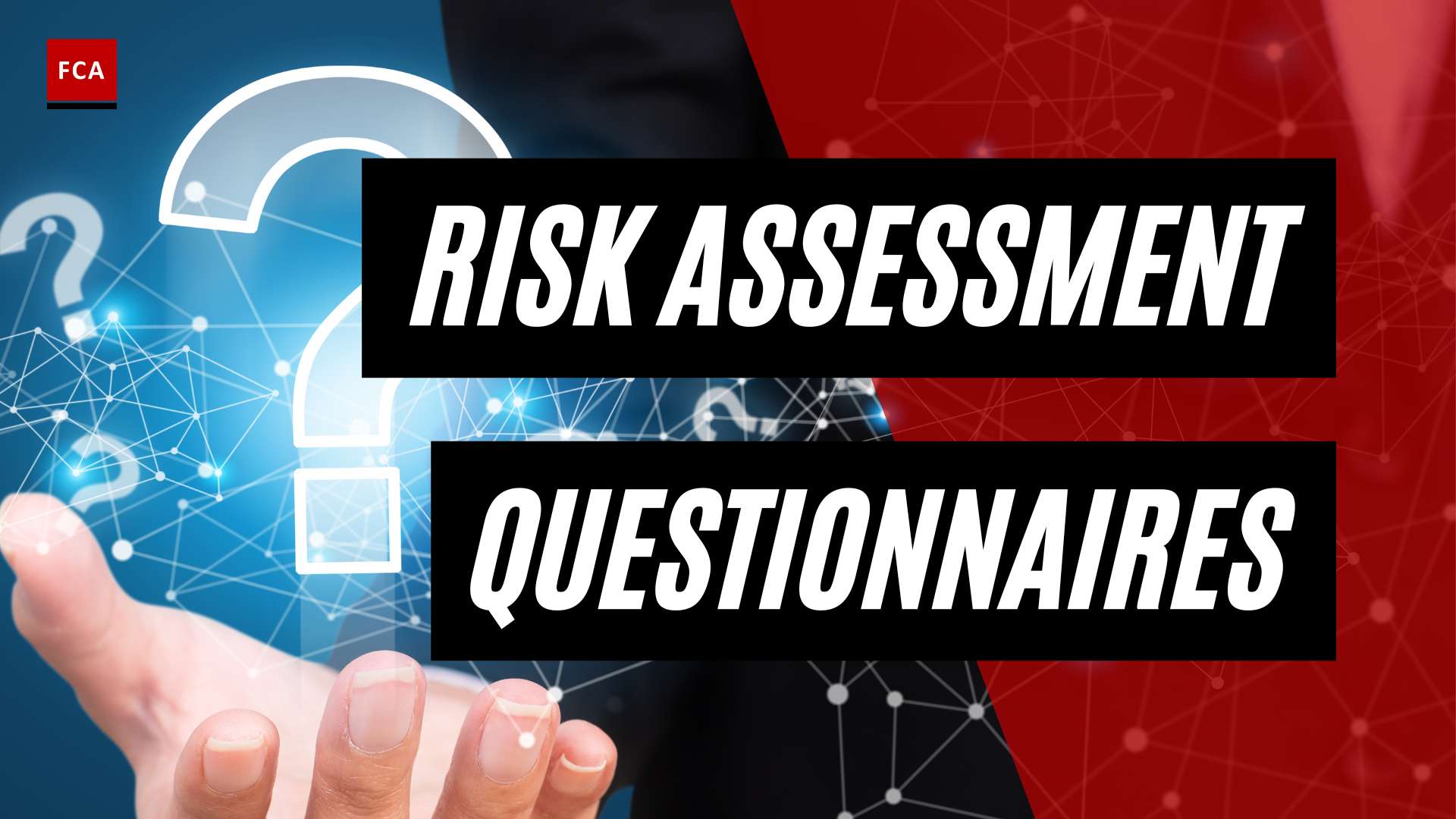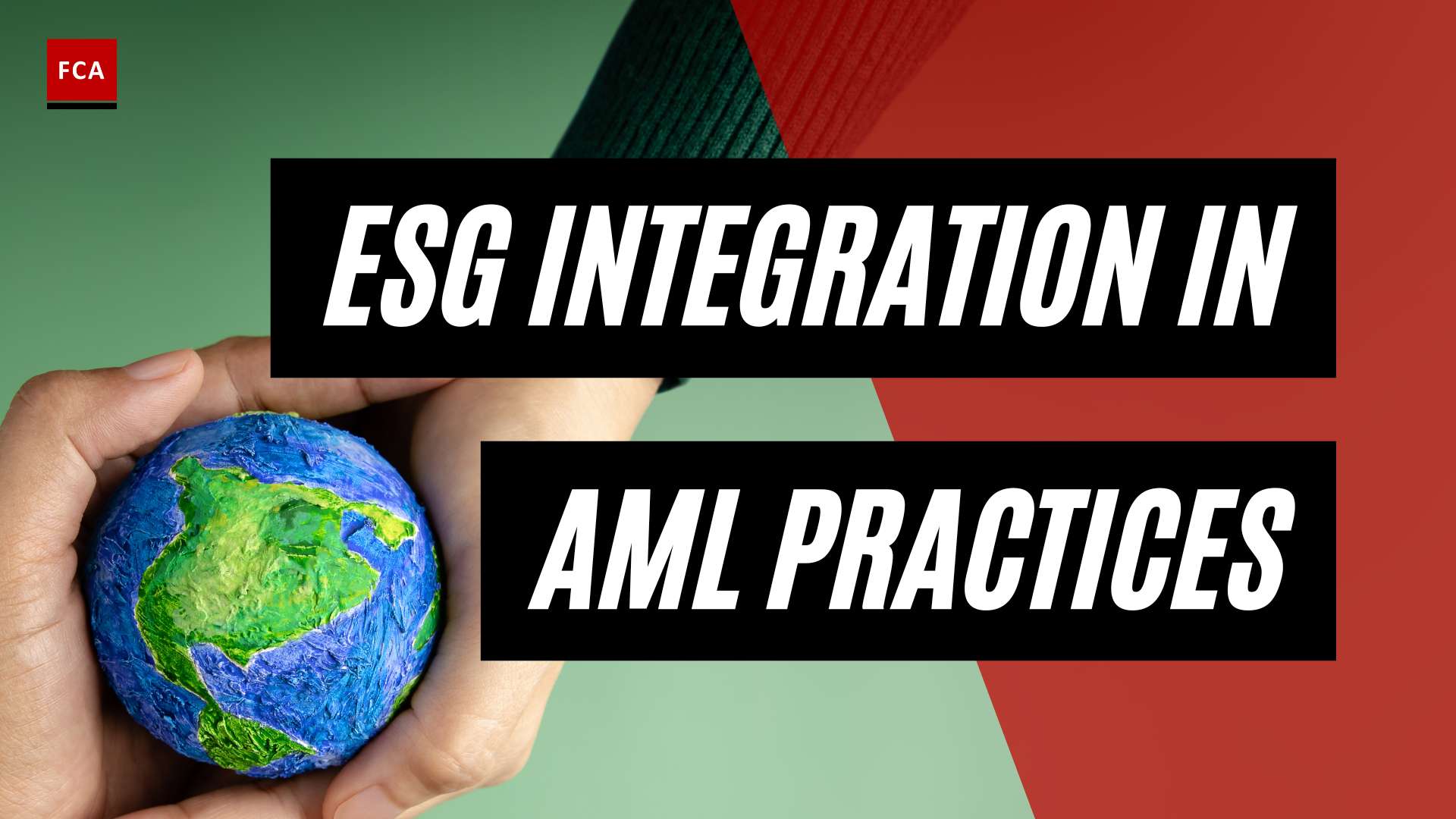Understanding AML Training
AML training plays a crucial role in equipping accountants with the necessary knowledge and skills to combat financial crime effectively. This section highlights the importance of AML training for accountants and provides an overview of the laws and regulations related to anti-money laundering (AML).
Importance of AML Training for Accountants
Accountants hold a key position in the financial industry and are often involved in transactions that could potentially be used for money laundering or terrorist financing activities. AML training is essential to help accountants understand the risks associated with these illicit activities and their role in detecting and reporting them.
By undergoing AML training, accountants gain a comprehensive understanding of money laundering and terrorist financing activities, as well as the laws and regulations they must comply with. This knowledge enables them to identify suspicious transactions, implement robust due diligence procedures, and contribute to the prevention and detection of financial crime.
Overview of AML Laws and Regulations
The laws and regulations surrounding AML are designed to safeguard the financial system and prevent illicit funds from being integrated into legitimate channels. Accountants must be familiar with these regulations to ensure compliance within their organizations.
Some key AML laws and regulations include the Bank Secrecy Act (BSA) and the USA PATRIOT Act. The BSA requires financial institutions, including accounting firms, to establish and maintain effective AML programs. The USA PATRIOT Act further strengthens these requirements by mandating the establishment of customer identification programs and enhanced due diligence for high-risk customers.
AML training provides accountants with an understanding of their obligations under these laws and regulations. It covers topics such as customer due diligence, enhanced due diligence, beneficial ownership identification, and the reporting of suspicious activity.
By staying up-to-date with AML laws and regulations, accountants can effectively contribute to the fight against money laundering and terrorist financing activities.
In the next sections, we will explore key concepts, components, and specialized training programs that accountants can undertake to strengthen their AML knowledge and skills.
Key Concepts in AML Training
To effectively combat financial crime, it is crucial for accountants to undergo comprehensive AML training that covers key concepts and principles. This training equips accountants with the necessary knowledge and skills to identify and prevent money laundering and terrorist financing activities. Let’s explore two key concepts that are fundamental to AML training: money laundering and terrorist financing activities, and the risk-based approach to compliance.
Money Laundering and Terrorist Financing Activities
Money laundering refers to the process of making illegally obtained funds appear legitimate by disguising their true source. Criminals engage in money laundering to enable the proceeds of illicit activities, such as drug trafficking or fraud, to be integrated into the legitimate financial system. By doing so, they attempt to conceal the illicit origins of the funds and avoid detection by law enforcement agencies.
Terrorist financing, on the other hand, involves providing financial support to individuals or organizations involved in terrorist activities. The funds used for terrorist financing can come from a variety of sources, including legitimate sources, criminal activities, and donations from sympathizers. Detecting and preventing terrorist financing is crucial for disrupting the financial networks that support terrorist organizations.
AML training for accountants provides a foundational understanding of these illicit activities and the methods used to carry them out. By familiarizing themselves with the signs and red flags associated with money laundering and terrorist financing, accountants can play a vital role in identifying and reporting suspicious transactions to the appropriate authorities.
Risk-Based Approach to Compliance
A risk-based approach is a fundamental principle in AML compliance. It requires organizations to assess and understand the risks they face in terms of money laundering and terrorist financing. This assessment enables them to allocate resources and implement appropriate measures to mitigate those risks effectively.
AML training emphasizes the importance of adopting a risk-based approach to compliance. Accountants learn to assess the level of risk associated with various clients, transactions, and business relationships. By considering factors such as the nature of the client’s business, jurisdictional risks, and the complexity of the transaction, accountants can tailor their due diligence efforts and apply appropriate levels of scrutiny.
Implementing a risk-based approach enables accountants to focus their resources on higher-risk areas and allocate their efforts more effectively. It ensures that the necessary due diligence measures are applied to clients and transactions that pose a higher risk of involvement in money laundering or terrorist financing.
By understanding these key concepts, accountants can contribute to the prevention and detection of financial crime. AML training equips them with the knowledge and skills to identify suspicious activities, conduct customer due diligence, and fulfill their responsibilities in accordance with AML laws and regulations. Through ongoing training and awareness, accountants can play a vital role in safeguarding the integrity of the financial system and protecting against financial crime.
In the next section, we will explore further components of AML training, including customer due diligence, enhanced due diligence, beneficial ownership identification, and suspicious activity reports.
Components of AML Training
AML training for accountants encompasses various components that are crucial in combating financial crime and ensuring compliance with anti-money laundering (AML) laws and regulations. These components include customer due diligence, enhanced due diligence, beneficial ownership identification, and suspicious activity reports.
Customer Due Diligence and Enhanced Due Diligence
Customer due diligence (CDD) is an essential component of AML training for accountants. It involves the thorough verification and identification of customers to assess their risk for potential money laundering or terrorist financing activities. Accountants must understand the importance of conducting CDD as part of their role in preventing financial crime.
Enhanced due diligence (EDD) goes beyond standard CDD procedures and is typically applied to higher-risk customers or transactions. Accountants should receive training on identifying scenarios that require enhanced due diligence and understanding the additional measures that need to be taken to mitigate associated risks.
Beneficial Ownership Identification
Another key component of AML training for accountants is the identification of beneficial ownership. Beneficial ownership refers to the individuals who ultimately own or control a legal entity. Accountants must be trained to identify and verify beneficial owners to prevent the misuse of corporate structures for illicit purposes.
Training in beneficial ownership identification should cover techniques for gathering accurate ownership information, understanding complex ownership structures, and recognizing red flags that may indicate attempts to conceal beneficial ownership.
Suspicious Activity Reports
Accountants play a crucial role in detecting and reporting suspicious activities that may be indicative of money laundering or terrorist financing. AML training should include guidance on recognizing suspicious activity indicators, such as unusual transaction patterns, inconsistent account activity, or unexplained sources of funds.
Accountants should be familiar with the process of filing suspicious activity reports (SARs) and understand their legal obligations and the importance of timely reporting. SAR training should emphasize the confidentiality and protection of the reporting process to encourage the reporting of suspicious activities without fear of retaliation.
By providing comprehensive training on customer due diligence, enhanced due diligence, beneficial ownership identification, and suspicious activity reports, accountants can effectively contribute to the prevention and detection of financial crime. This training equips them with the knowledge and skills necessary to fulfill their obligations and comply with AML laws and regulations.
Specialized AML Training for Accountants
Accountants play a crucial role in the fight against money laundering and financial crime. To equip accountants with the necessary knowledge and skills, specialized Anti-Money Laundering (AML) training programs have been developed.
FCA AML Training for Accountants
The FCA AML Training for Accountants is designed to provide accountants with a foundational understanding of money laundering and terrorist financing activities, as well as the laws and regulations they need to comply with in their professional practice.
By participating in FCA AML Training for Accountants, professionals can enhance their knowledge of AML compliance and gain practical insights into identifying and mitigating risks associated with money laundering. This training equips accountants with the necessary tools to effectively contribute to their organizations’ AML efforts.
CAMP Certification for AML Professionals
The Certified Anti-Money Laundering Professional (CAMP) certification offered by FCA is industry recognized credential in the AML field. While not exclusive to accountants, this certification is highly valuable for professionals looking to advance their careers in AML.
By earning the CAMP certification, accountants demonstrate their specialized knowledge and commitment to the field. The certification covers a wide range of AML topics, including risk assessment, due diligence, suspicious activity reporting, and compliance programs. It signifies that the accountant possesses a comprehensive understanding of AML principles and can effectively apply them in their role.
Obtaining CAMP certification not only enhances an accountant’s professional credibility but also opens up new career opportunities. Employers often prioritize candidates with CAMP certification when hiring for AML-related positions.
To delve deeper into the world of AML training, explore our article on aml training courses.
AML Training in the Accountancy Field
Accountants play a crucial role in combating financial crime through their expertise in financial transactions and reporting. To effectively contribute to anti-money laundering (AML) efforts, accountants must undergo specific AML training. This section will explore the requirements for AML training for accountants and the consequences of non-compliance with AML and counter-financing of terrorism (CFT) regulations.
AML Training Requirements for Accountants
AML training is essential for accountants as it provides them with the knowledge and skills required to detect and report potential money laundering and terrorist financing activities. Various regulatory bodies and organizations offer AML training programs tailored specifically for accountants.
It is important for accountants to stay updated with the latest AML training requirements and regulations specific to their jurisdiction. Organizations such as professional accounting bodies and regulatory authorities often provide guidance on the specific AML training requirements for accountants in their jurisdiction.
Consequences of AML/CFT Non-Compliance
Non-compliance with AML and CFT regulations can have serious consequences for accountants and their firms. Regulatory authorities are increasingly focused on enforcing AML/CFT obligations, and the penalties for non-compliance continue to escalate.
In New Zealand, for instance, accountants conducting specific activities, such as acting as a nominee director, conducting real estate work, forming companies, managing client funds, or providing office addresses, fall under the scope of the Anti-Money Laundering and Countering Financing of Terrorism (AML/CFT) Act. Failure to comply with AML/CFT obligations can result in penalties and negative impacts on businesses. In a notable case in 2021, a law firm received a public formal warning from the Department of Internal Affairs (DIA) for failing to meet AML/CFT obligations (AML Hub). It is crucial for accountants to understand and fulfill their AML/CFT obligations to avoid legal and reputational risks.
Similarly, in other jurisdictions, such as Canada, there are consequences for non-compliance with AML regulations. Changes to the Anti-Money Laundering/Anti-Terrorist Financing (AML/ATF) legislation and the Criminal Code have increased the risks and consequences of non-compliance for accountants and accounting firms. Staying up to date with the evolving AML regulations and fulfilling AML training requirements is vital to mitigate these risks and ensure compliance (CPA Canada).
Accountants must recognize the importance of AML training and compliance to effectively contribute to the prevention and detection of financial crimes. By undergoing AML training, accountants can acquire the necessary knowledge and skills to fulfill their AML/CFT obligations, protect their firms, and contribute to the broader fight against money laundering and terrorist financing.
The Changing Landscape of AML Audits
As the field of anti-money laundering (AML) evolves, so do the methods used to detect and prevent financial crimes. A crucial aspect of this evolution is the changing landscape of AML audits, which now incorporate modern technological realities. Accountants engaged in AML activities must adapt to these changes through updated training to effectively combat financial crimes.
Incorporating Technological Realities in AML Audits
Technology has played a significant role in transforming the way AML audits are conducted. The integration of sophisticated tools, such as artificial intelligence (AI), machine learning (ML), and data analytics, has revolutionized the audit process. These technological advancements enable accountants to analyze large volumes of data more efficiently and identify suspicious activities that may indicate money laundering or terrorist financing.
By leveraging AI and ML algorithms, accountants can now detect complex patterns and anomalies in financial transactions, providing them with valuable insights for identifying potential risks. Moreover, data analytics tools allow for in-depth analysis of vast amounts of financial data, helping accountants uncover hidden connections and uncover illicit activities.
To effectively incorporate these technological realities into AML audits, accountants must undergo specialized training. This training equips them with the knowledge and skills necessary to leverage these advanced technologies effectively. By staying updated on the latest tools and techniques, accountants can enhance the effectiveness and efficiency of their AML audit processes.
Importance of AML Training in Modern Audits
The rapidly changing AML landscape emphasizes the importance of continuous training for accountants. AML training provides accountants with the necessary knowledge and expertise to navigate the complex regulatory environment and combat financial crimes effectively. By staying abreast of new anti-money laundering technologies and regulations, accountants can better understand emerging risks and develop robust strategies to mitigate them.
Effective AML training programs cover a range of topics, including the latest AML laws and regulations, risk assessment methodologies, customer due diligence practices, and the identification of suspicious activity. Additionally, training should focus on the integration of technological tools into the audit process, ensuring accountants are well-equipped to leverage these technologies for enhanced detection and prevention of financial crimes.
Accountants can pursue various avenues for AML training, including specialized courses and certifications.
As the AML landscape continues to evolve, accountants must recognize the significance of ongoing training and professional development. By embracing the changing technological realities and staying updated on the latest AML practices, accountants can play a vital role in safeguarding the financial system and combating financial crimes effectively.
To explore more about AML training and related topics, visit our article on aml training courses or learn about aml training requirements for accountants.
Elements of an Effective AML Compliance Program
To combat financial crime effectively, it is crucial for organizations to establish and maintain a robust Anti-Money Laundering (AML) compliance program. Two key elements of such a program are the appointment of a Compliance Officer and the development of comprehensive policies. Additionally, conducting a risk analysis and implementing ongoing monitoring are essential components to ensure the program’s effectiveness.
Compliance Officer and Policies
An essential element of an AML compliance program is the appointment of a Compliance Officer. This individual is responsible for overseeing the organization’s AML efforts, developing policies and procedures, and implementing necessary tools to ensure compliance across different sectors (CPA Canada). The Compliance Officer plays a crucial role in creating a culture of compliance within the organization and acts as a point of contact for regulatory authorities.
Written policies and procedures are another critical aspect of an effective AML compliance program. These policies provide a clear roadmap on how people, processes, and systems will collaborate to meet obligations, with appropriate allocation of resources to address the greatest threats (CPA Canada). The policies should cover various aspects, including customer due diligence, record-keeping, reporting, and training requirements. They should align with applicable AML laws and regulations, as well as industry best practices.
Risk Analysis and Ongoing Monitoring
Conducting and documenting a risk analysis is a requisite under AML regulations. Organizations need to understand their risks and apply measures to mitigate them effectively across all products, services, and business lines (CPA Canada). This risk-based approach to compliance ensures that resources are allocated based on the level of risk associated with different activities. By identifying and assessing risks, organizations can implement appropriate controls and procedures to prevent money laundering and terrorist financing.
Ongoing monitoring is another crucial element of an effective AML compliance program. Compliance with the reporting regime, including various types of transactions, is essential. Organizations should leverage sophisticated tools, such as machine learning and data analytics, to continuously monitor transactions and identify any suspicious activities. Regular assessment and review of the AML program are necessary to ensure its effectiveness and adapt to changing threats and regulations.
By establishing a Compliance Officer position, developing comprehensive policies, conducting a risk analysis, and implementing ongoing monitoring, organizations can strengthen their AML compliance program. These elements create a framework that promotes accountability, risk mitigation, and adherence to regulatory requirements. It is important for organizations to stay up to date with the evolving landscape of AML laws and regulations to ensure the effectiveness of their compliance programs.
Frequency and Content of AML Training
To effectively combat money laundering and mitigate the risks associated with financial crime, it is crucial for organizations to provide regular and comprehensive AML training to their employees, including accountants. The frequency and content of AML training should be determined based on the firm’s risk exposure, ensuring that employees are equipped with the necessary knowledge and skills to fulfill their roles in anti-money laundering processes.
Determining Training Frequency Based on Risk
The frequency of AML training sessions should be tailored to the risk level of the firm and its employees. Higher-risk firms typically conduct auditable AML training annually, with additional reminders and briefings in between sessions. On the other hand, lower-risk firms may require less frequent formal training sessions (Jonathon Bray). The traditional practice of conducting training every two years may still be appropriate for some firms.
To determine the appropriate frequency of AML training, firms should take into consideration their Firm Wide Risk Assessment. This assessment serves as a starting point to identify areas where training should focus. Higher-risk areas, such as conveyancing and complex corporate sectors, require more stringent AML controls and training. The Money Laundering Reporting Officer (MLRO) plays a key role in ensuring that suspicions and queries are promptly raised by the team (Jonathon Bray).
Trigger Points for Providing AML Training
AML training should not be limited to scheduled sessions alone. There are specific trigger points that indicate the need for additional training to ensure employees are up to date with the latest requirements and procedures. Some examples of trigger points for providing AML training include:
- New Staff Induction: When new employees join the organization, it is essential to provide them with AML training as part of their induction process. This ensures that from the start, they understand the importance of AML compliance and their role in preventing financial crime.
- Material Changes to AML Regime or Internal Policies: Whenever there are significant changes to the AML regime or internal policies, it is crucial to provide updated training to employees. This ensures that they are aware of the latest requirements and procedures and can implement them effectively.
Regular training sessions and trigger-based training help reinforce the knowledge and skills necessary for AML compliance, ensuring that accountants and other employees remain vigilant and up to date with the evolving landscape of financial crime prevention.
By providing AML training at appropriate intervals and incorporating trigger points for additional training, organizations can enhance their overall AML compliance efforts and empower their accountants to play a proactive role in combating money laundering and terrorist financing activities.
For more information on AML training, including AML training courses, materials, and certifications, visit our AML Training page.
AML Training in Different Jurisdictions
Accountants play a crucial role in combating financial crime through their understanding of anti-money laundering (AML) regulations and commitment to upholding compliance standards. AML training for accountants is tailored to the specific requirements of different jurisdictions, ensuring that professionals are equipped with the necessary knowledge and skills to effectively address AML challenges. In this section, we will explore AML training for accountants in New Zealand and the AML requirements for accountants in Canada.
AML Training for Accountants in New Zealand
In New Zealand, the fight against money laundering is a significant concern. It is estimated to cost the country $1.3 billion annually, with global figures ranging between $800 billion and $2 trillion, amounting to 5% of the global GDP (AML Hub). To combat this issue, the New Zealand government enacted legislation in 2009, extending its scope to include accountants in 2018.
Under the Anti-Money Laundering and Countering Financing of Terrorism (AML/CFT) Act, accountants who engage in specific activities such as acting as a nominee director, conducting real estate work, forming companies, managing client funds, or providing office addresses are subject to AML/CFT obligations (AML Hub). These obligations require accountants to implement robust AML compliance programs, conduct customer due diligence, and report suspicious activities.
To fulfill their AML training requirements, accountants in New Zealand can access specialized training programs designed to address the unique challenges they face. These programs provide comprehensive knowledge on AML laws, risk assessment, customer due diligence, and reporting obligations. By completing these training courses, accountants can enhance their understanding of AML regulations and contribute to the fight against financial crime.
AML Requirements for Accountants in Canada
Canada has also implemented significant changes to its AML regulations, with new federal regulations taking effect in June 2021. These regulations directly impact accountants, who are now subject to specific AML requirements (CPA Canada). Currently, these requirements only apply to Chartered Professional Accountants (CPAs), while unregulated accountants are not subject to these regulations. However, there have been discussions about extending the AML requirements to unregulated accountants performing triggering activities in Canada to ensure a more comprehensive approach (CPA Canada).
The AML requirements for accountants in Canada include verifying the identity of heads of international organizations and politically exposed persons in certain circumstances, as these individuals are considered to have potential risks associated with money laundering. By adhering to these regulations, accountants contribute to the prevention and detection of financial crime.
Accountants in Canada can access AML training programs that provide in-depth knowledge of AML laws and regulations, risk assessment, and compliance best practices. These programs equip accountants with the skills and expertise needed to identify and address money laundering activities effectively.
By staying up-to-date with AML training requirements and actively participating in training programs, accountants in New Zealand and Canada demonstrate their commitment to combatting financial crime. Their knowledge and expertise contribute to the overall effectiveness of AML measures, ensuring a safer and more secure financial environment.








